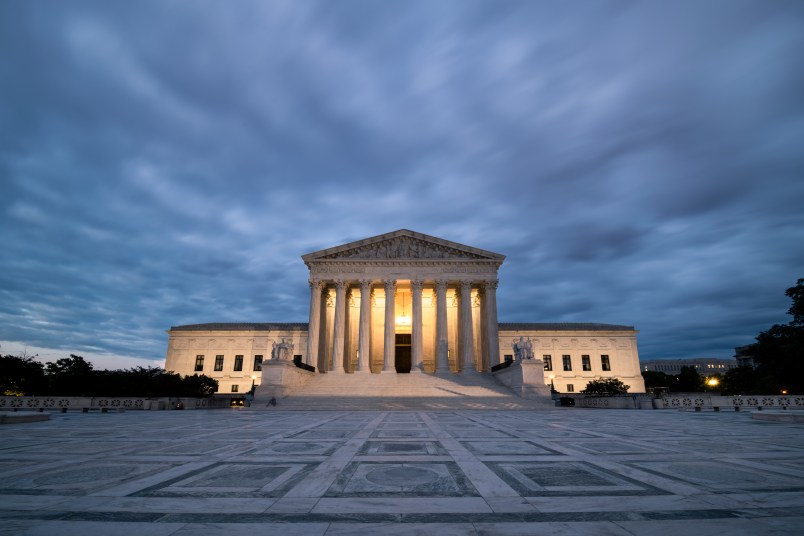Even before the FBI seized records at Mar-a-Lago in August, former President Trump and his allies have been hawking one line: he declassified the documents, by hook, by crook –even by virtue of his mind.
It’s an assertion that Trump has made over and over again, everywhere except in court.
In a new filing opposing an attempt by Trump to have the Supreme Court intervene in the Mar-a-Lago case, the DOJ thoroughly demolishes that logic, and does so in two parts: It doesn’t matter if the records are declassified, the government says, because either way they belong to the Executive Branch. Turning the screw a bit more, the government notes that Trump himself refuses to say in court that he “in fact declassified any documents — much less supported such a representation with competent evidence.”
Trump asked the Supreme Court last week to intervene in the case, as it applies to classified records. The former President wants the high court to allow U.S. District Judge Raymond Dearie for the Eastern District of New York, the special master appointed in the case, to be allowed to review classified records seized by the government.
It’s a narrower request than the ones Trump has been making, but no less radical: It could allow Trump’s attorneys to review highly secret records that may end up being used to charge him.
The DOJ called Trump’s claims around declassification “irrelevant.”
Some 100 records seized in search, the government said, have markings indicating that they’re classified.
“The classification markings establish on the face of the documents that they are not applicant’s personal property,” wrote Solicitor General Elizabeth Prelogar, before citing the 11th Circuit Court of Appeals in calling the question a “red herring.”
The question of whether the records themselves were classified has partially been an example of Trump trying to muddy the waters. Though their sensitivity matters in the sense of potential damage to national security, and may play a potential role in a future prosecution, the question of possession that Trump has raised since the FBI searches at Mar-a-Lago comes down to his status as a former, not a current, president.
No matter how much he may wish it otherwise, Trump can’t change that fact, the DOJ suggested. The Presidential Records Act mandates that records from his administration should have gone to the National Archives – classified or not.
“Applicant’s reliance on the PRA is misguided because he did not comply with his PRA obligation to deposit the records at issue with NARA in the first place,” the government argued.







Sweet, sweet music.
No need to make a statement in court (under penalty of perjury and professional sanction) when judge loosey cannon will cheerfully issue rullings as if you had made the assertion.
This article states: “In a new filing opposing an attempt by Trump to have the Supreme Court intervene in the Mar-a-Lago case, the DOJ thoroughly demolishes that logic…”
I am not so sure that the Supreme Court in its present state employs “logic,” as evidenced by its recent rulings.
Clarence Thomas may be so deep in the crazy that he can’t tell the difference any longer, but that brief is a refreshing dose of sanity.
Has Putin filed a FOIA request yet? I mean, since they’ve been declassified and all.